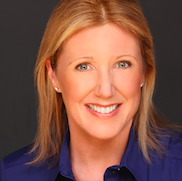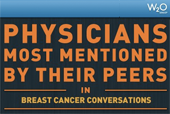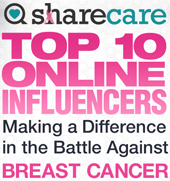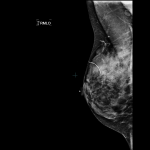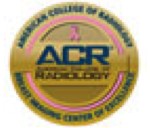Q&A: When and How Often Should I Visit?
October 11th, 2012At what age should I start having screening mammograms, and how frequently? Why does there seem to be controversy in the media surrounding this?
- For most women, age 40 should be when you start having yearly mammograms in order to minimize your likelihood of developing advanced breast cancer. Some doctors send their patients for a baseline mammogram at age 35, and I wouldn’t argue with that.
If you have a strong family history of breast cancer (mother or sister), start having your mammogram 10 years younger
AMA Votes in Support of Screening Mammography Starting at 40
July 6th, 2012This week, after much discussion, inquiry and debate, The House of Delegates of the American Medical Association (AMA) voted at the AMA 2012 Annual Meeting to support insurance coverage for screening mammography. The AMA further stated its belief that beginning at age 40 years, all women should be eligible for screening mammography. The AMA now joins the American Cancer Society, the American College of Ob/Gyn, the American College of Surgeons, the American College of Radiology, and other esteemed guideline-making professional groups in disagreeing with …
Read MoreFirst, Do No Harm: The Spectacular Failure of a Government Panel
February 28th, 2012As a veteran of World War II, my grandfather was a GI Bill success story, the first man to go to college from his impoverished neighborhood in Jersey City thanks to government at its finest. A card-carrying member of the state teachers’ union, and a politically active Democrat for most of his life, it came as something of a shock to me when, after a few decades of observing big government debacles, my grandfather became one of Ronald Reagan’s most ardent fans. I still remember his delight over the classic Reaganism, “The nine most terrifying words in the English language…
Read MoreDiagnosed with Breast Cancer at Age 29, Lori Kennedy Shares Her Story 20 Years Later
November 21st, 2011Looking at her today, you’d never guess that my mom friend Lori Kennedy had been through the gauntlet of breast cancer diagnosis and treatment at the age of 29. A mutual friend introduced us several years ago, and after Lori learned that my field is breast imaging, she mentioned that she’d had breast cancer years before. I was intrigued by her story, and thought it would be helpful to share in “The Breast Diaries.”
The Shock of Diagnosis
In April of 1992 Lori was 29 years old, living the single life in Hoboken and working successfully in sales. She had been dating a man…
Read More8 Things You Can Do TODAY to Lower Your Risk of Advanced Breast Cancer
October 29th, 2011Breast Cancer Awareness Month ends on Monday. Of course awareness is important, but knowing what specific actions you can take to protect yourself against the disease is empowering. Breast cancer can strike anyone, with or without risk factors. However, there are several things you can do NOW to lessen the likelihood of advanced breast cancer happening to you.
1. Lace up and take a walk! According to the Women’s Health Initiative study, women who walked just 30 minutes per day at least 5 days a week (exercise pace, not a leisurely stroll) decreased their breast…
Read MoreWhen Should I Have My First Mammogram?
October 4th, 2011General Guidelines
For most women, age 40 should be when you start having yearly mammograms in order to minimize your likelihood of developing advanced breast cancer (“Government Mammography Task Force vs. You”). Some doctors send their patients for a baseline mammogram at age 35, and I wouldn’t argue with that.
Family History
If you have a strong family history of breast cancer (mother or sister), start having your mammogram 10 years younger than the age that relative was diagnosed, OR at age 40, whichever is younger. For example, if your sister had breast cancer…
Read MoreGovernment Mammography Task Force Vs. You
September 26th, 2011Top 9 Reasons Why the Government Panel Recommendations on Mammography are Bad for Your Health
If the 2009 USPSTF (U.S. Preventive Services Task Force) recommendations are followed, as many as 20% of breast cancer deaths will be in women who could have been saved. The USPSTF knew this when they issued their report.
1. The Task Force’s own data shows that the most lives are saved by starting mammography screening at age 40, but they chose to ignore that data. They made a value judgment as to how much a woman’s life is worth. The science clearly shows that starting annual …
Read MoreDon’t Be Shy
September 16th, 2011Breast self-examination (BSE) is one of our key weapons in the arsenal to detect breast cancer as early as possible. It only takes a few minutes a month, yet a woman can potentially save her own life by taking the time to do it. For reasons that have nothing to do with science or common sense, the government panel known as the U.S. Preventive Services Task Force, which did not include even one doctor specializing in breast cancer as a panelist, recommends AGAINST women doing self-examinations. See my take on this HERE.
BSE is especially important if you are younger…
Read More
